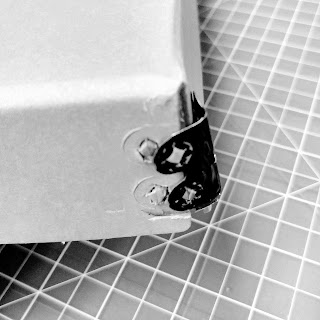Finding Aids and The Humanities in the Time of Covid
Wow. It's been over a YEAR since I last posted some (hopefully) helpful tidbit about Archives work here on Tiny Archives Project. And what radical changes we've seen in that time. Who would have imagined back in 2019 that here today, one year later, we would be in the middle of a pandemic that is still difficult to wrap our heads around?
You may think I'm getting back to writing due to an expansion of my free time, but as a lot of us have realized, just being on lockdown (stay-at-home, quarantine, whatever you want to call it) doesn't mean time won't fill back up with STUFF. Be it through a sudden urge for Self Improvement, Not Wasting Time, Feeling Accomplished, Making the Most of This, Getting Back to Normal or just because life goes on and there really are endless things to be done even from home; most of us are pretty busy. I still have regular full workdays, weekly meetings, social engagements, workshops and speaking engagements (all online). And if you're floundering in this world of overachievement and frantic busyness, that's okay too. All I wanted to do for most of the month of April was sit under my tiny desk and randomly burst into tears because, damn, this is all so fucked up.
Anyway, I was spurred to write again by a grant proposal I recently submitted. In the "Why Are You So Important?" section of the application, it asks about my archives' support of the humanities. Grants from this program are focused on humanities collections and institutions. And no matter how many times I apply for this type of thing, I always end up doing some random internet wandering to re-remember what the humanities are all about. And the answer is always: They are broad. They are about humans and what humans do. They cover arts and culture, philosophy, religion, even some things that have science in the name but they are still also humanities!!
I've learned over time that the humanities are also about questioning. They are about humankind digging deeply into itself and asking the why and how of everything we've ever done. They look critically at things in the human sphere and wonder if they really are as they appear.
The wormhole I went down led me to questions. And more questions. Questions about my own questions. Questioning every other statement and requirement within the application material. This particular application also asks how my institution has advanced the humanities. So in the most humanities-est fashion possibly I have to ask, "Well, what does THAT mean?" How does my little, tiny archive, overseen by my Lone Arranger self advance the mammoth and limitless expanse of THE HUMANITIES?!?
But then I realized I've been doing a lot of questioning of my collections lately as well. Looking back at old collections finding aids (which is one of many things I'm able to do remotely) I found myself asking, "How much could I really know about this collection as a researcher just by looking over this document?" The answer, in some of our earliest finding aids was: Not Much.
And so, with grant-writing through, I have embarked for much of this spring and summer on a quest to make my finding aids truly useful to the general researcher. They still tick all of the boxes of DACS recommendations, etc., but I am striving to make the language reflect the facts. To tell the user what they can expect to find, and at the same time not get their hopes up about some holy grail to be found in a particular collection. Not actually being around the collection or being able to rifle through its folders is an advantage. I have to think critically about what I know about that collection and convey those things to someone else who cannot see it either. It's the classic tale of the blind men and the elephant. How do we all come to the same conclusion?
It's been a good exercise and as I've slowly started to make visits to my office (still only about one day per week), it has been enlightening to revisit collections and pair them with an updated finding aid. Though the meeting of the two tends to bring up even more questions, I feel I'm only doing my bit to advance the humanities.


Comments
Post a Comment